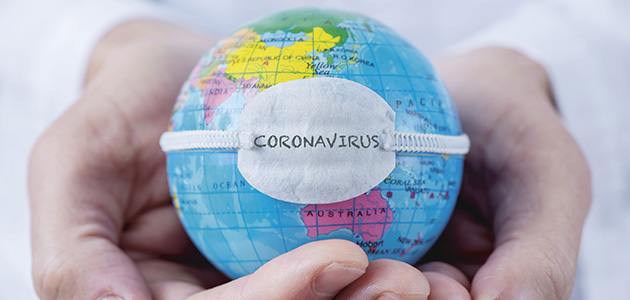‘Nature has been in long retreat from human rapacity, but the moment we step back a little…’
Thought for the week: Jonathan Doering upon a time

These are strange times indeed. Far less traffic, many of us at home, and schools closed. After initial elation that he’d be escaping lessons, our son realised that he won’t see his friends for weeks, which has led to some real grief and therapeutic reading of The Stone Mouse and The Blue Day Book (which I recommend heartily).
A further development has been this Sunday morning when, like so many Friends, we held a DIY Meeting for Worship in our living room. One silver lining was that, for part of the time, I could admire the small copse visible through the window, and reflect upon current events.
I have recently concluded that God and Nature have ways of directly communicating with us, to which hitherto we have not paid attention. In fact, these means of communication could be argued to have taken the form of plagues reminiscent of Egypt’s punishment. Humanity has selfishly plundered and abused the natural world for resources, space and profit, leading to the large-scale suffering, injury and destruction of much life. Storms raging globally. Fires in Australia and the Americas. Flooding across Britain. Locusts in Kenya. Drought in South Africa. Famine in Zimbabwe. These ‘plagues’ have all been partial, temporary or ignorable in some way: the world’s poor have borne the sharpest edge, and where the threat has been wider, emergency and other services mitigate the worst effects. As soon as the worst appeared to be passed, we slipped back to ‘business as usual’. But COVID-19 is a plague of pandemic proportions. This time, we can’t ignore God or Nature. This time, we need to pay attention and take more permanent action.
Granted, there have been serious negative results of this pandemic: deaths, panic, anxiety, mental health disorders, communal distress, panic-buying. But there have been positive results as well: a resurgence of community spirit, neighbourliness and compassion. And beyond human society, the groaning earth has breathed a little in relief: pollution clouds have disappeared; there are dolphins swimming in the Grand Canal in Venice; and – is it me, or can we hear more birdsong? Nature has been in long retreat from human rapacity, but the moment we step back a little, it flexes a little more.
During our Meeting, I read Quaker faith & practice 21.21: ‘The art of living must be studied, as must every art… The soul, hungry for God, is fed. Life itself takes on new meaning. Thus it is that we break from the confines of the prisons we have built about ourselves. Thus it is we are brought into the freedom of the Kingdom of God which, every day, through the wide world, is being realised in the hearts of [everyone].’
The images in the newspapers of protesters calling for a pause in the current system certainly chime with me. This frightening time feels also like a momentous opportunity to reevaluate our lives, to seek a meaningful rebalancing of how we live with each other and the rest of creation on this planet.
You need to login to read subscriber-only content and/or comment on articles.
